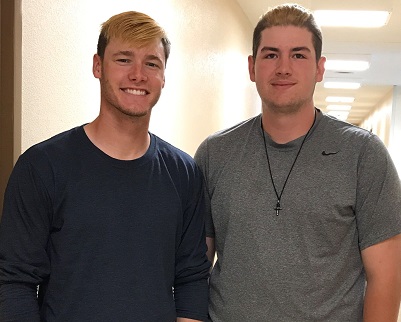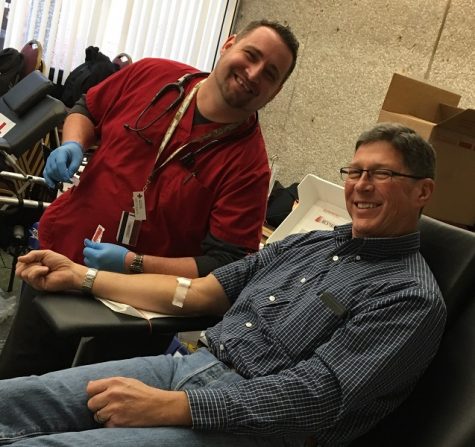Ag Education Would Benefit
January 3, 2017
It’s no surprise as the world of agriculture seems to become smaller and farmers become fewer and farther between that today’s younger generations are oblivious as to where their food comes from. Not only kids in major metropolitan areas face this issue; youths in small communities are also far disconnected from the world of agriculture. Every student should be required to take a general agriculture course at some point in his or her school career.
This class would be required nationally, and could even be beneficial worldwide. It would focus solely on the basics of agriculture. Its goal would simply be to teach the next generation where their food comes from, that it is safe, and it could even plant a seed of excitement for agriculture and produce a future farmer. This class would highlight meat production from birth to slaughter [beef, pork, chicken, etc.], crop production from seed to harvest [corn, wheat, soybeans, etc.], and environmental health [soil, water, etc.].
Meat production is a controversial topic with the public. Many believe that farmers fill their livestock with hormones and antibiotics that are dangerous, all in hopes to turn a larger profit. Also it is presumed chemicals are used to the point of slaughter, leaving hormones or antibiotics in the meat.
All meat that is sold and consumed is antibiotic-free at the time of slaughter. It’s important for students to become educated consumers and learn that meat isn’t harmful. These medicines are used to avoid disease and suffering, not for personal benefit.
Crop production is also debated worldwide. It is believed that farmers overload their crop with herbicides and pesticides that are dangerous to the public and are poisoning consumers. The discussion over GMOs, genetically modified organisms, also is often heated.
Farmers do what is necessary to maximize production while still maintaining a safe, healthy product. Every chemical that is used in crop production is needed to maintain a high yielding crop. These chemicals help against bugs and weeds. Pesticides and herbicides are necessary to produce the most food possible to feed the ever growing population. With the population pushing 9 billion people in the near future we must do all that is possible to produce more food with less resources. GMOs simply amplify production by cross germinating seeds to create a hybrid, superior crop. It is in no way harmful or unhealthy but necessary.
It is also believed by some that farmers are using all of the nation’s nonrenewable resources and don’t take proper care of our earth.
Farmers are stewards of the land and want nothing less than for it to be suitable for farming for generations to come. They rotate their crops and fields to give the land and soil a break to rebuild the nutrients plants need to be healthy. They fertilize their crops with their livestock’s manure, and now more than ever they minimize water usage by employing different methods of watering their livestock and new means of irrigating their crops. The value of the land is more important to farmers and ranchers than to anyone else; it is their livelihood.
It is also important for students to know that there are many different types of agriculture and they vary around the world. Not only would they be learning about agriculture, but also they would learn of different cultures and ways of life. What we grow and consume here in the United States is vastly different than what is necessary to survive in other nations. We have differences in resources and technology.
There are also many differences in various parts of this country. While a farm in Wisconsin may solely make a living with dairy cattle, a farm in Kansas typically depends on cattle and wheat production. Just as there is variety in people, there is diversity in agriculture.
Younger generations are far disconnected from the world of agriculture, and many youths couldn’t even tell from where their food comes. Students need to become educated consumers. Why is an art or theater class required but not one that is necessary for human sustainability?










